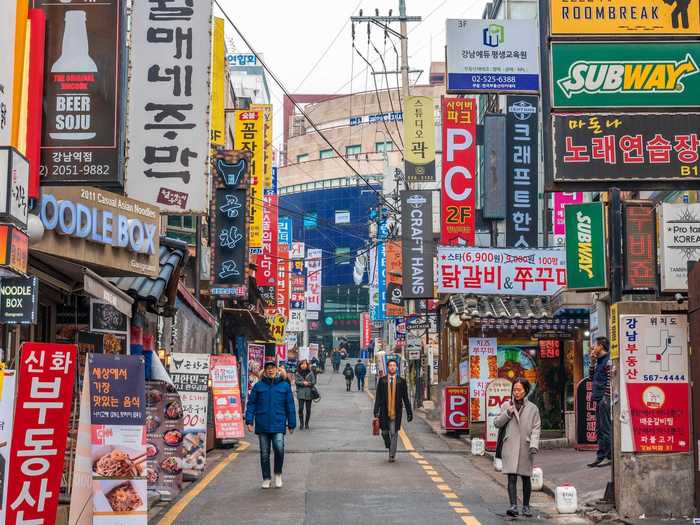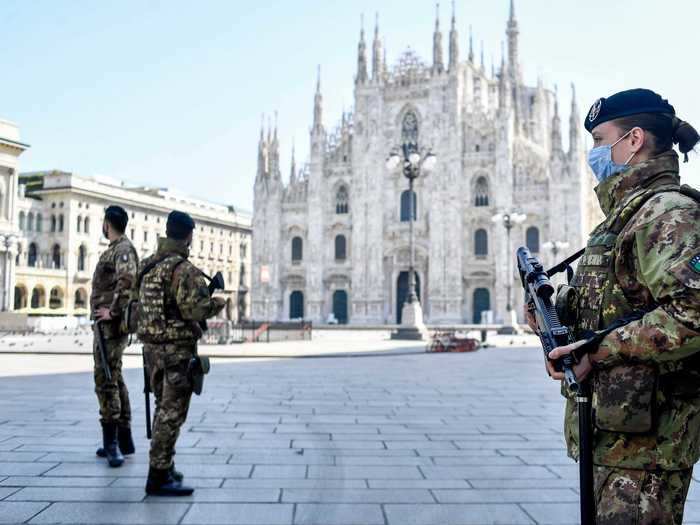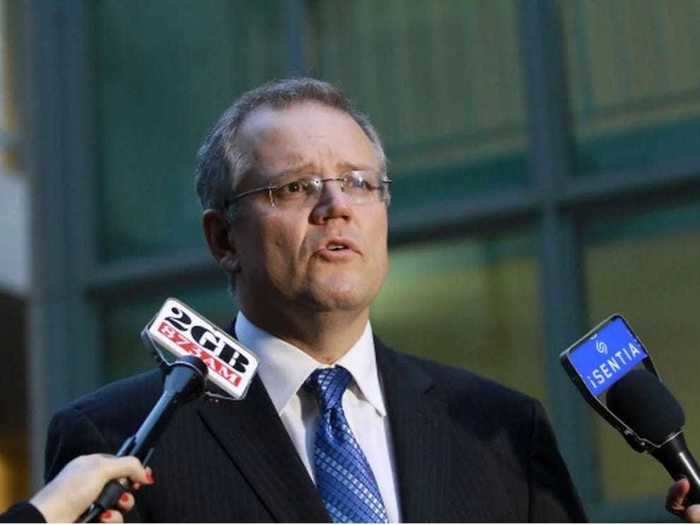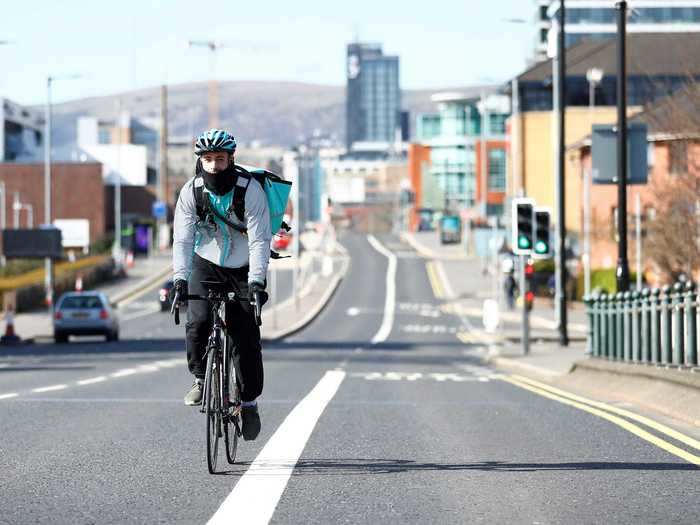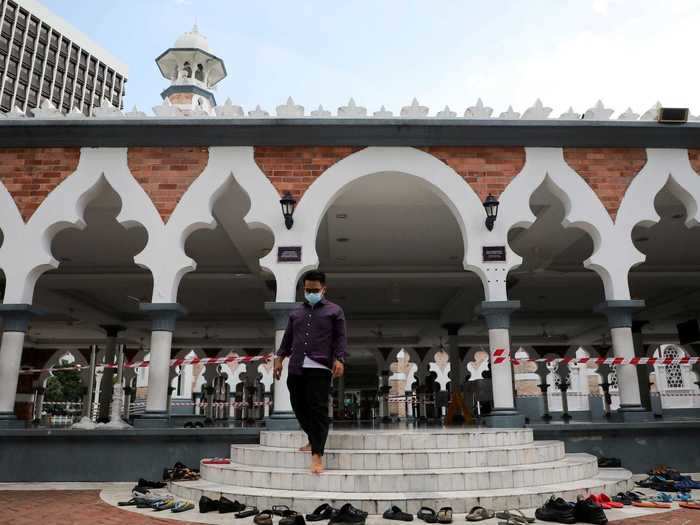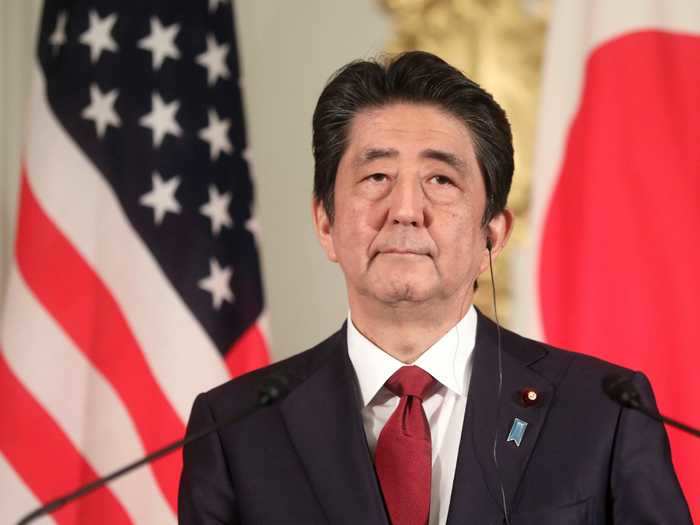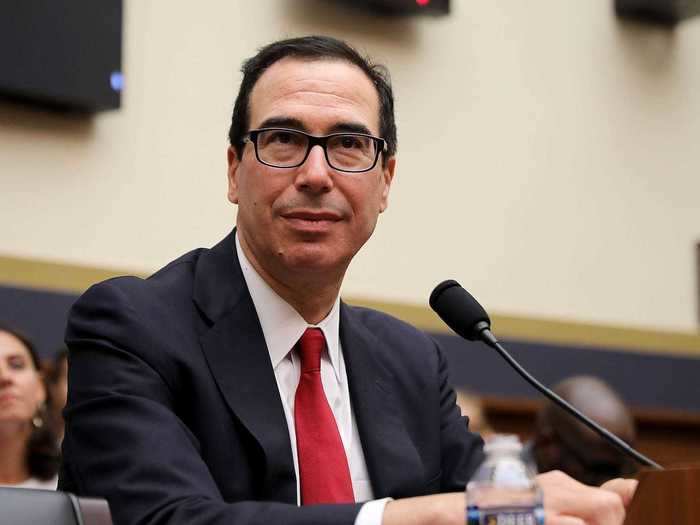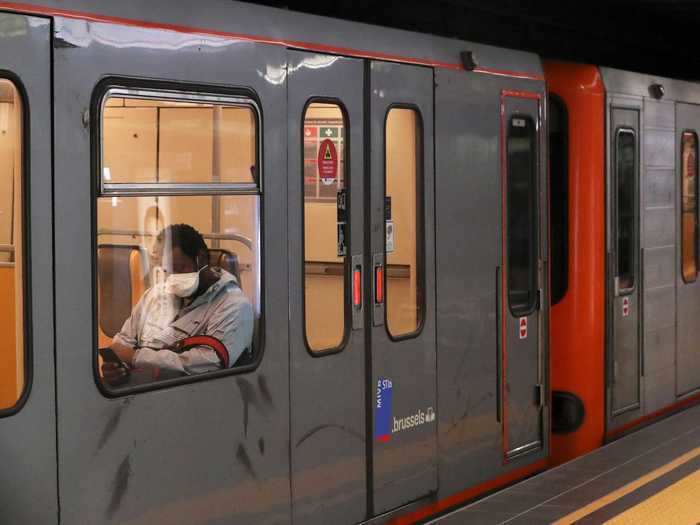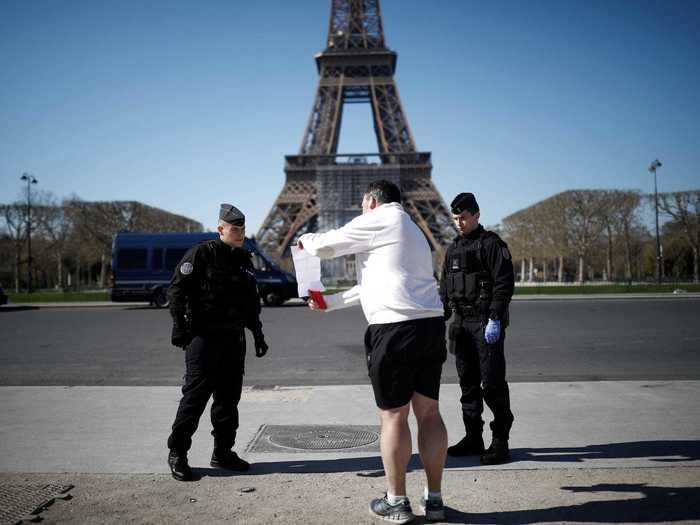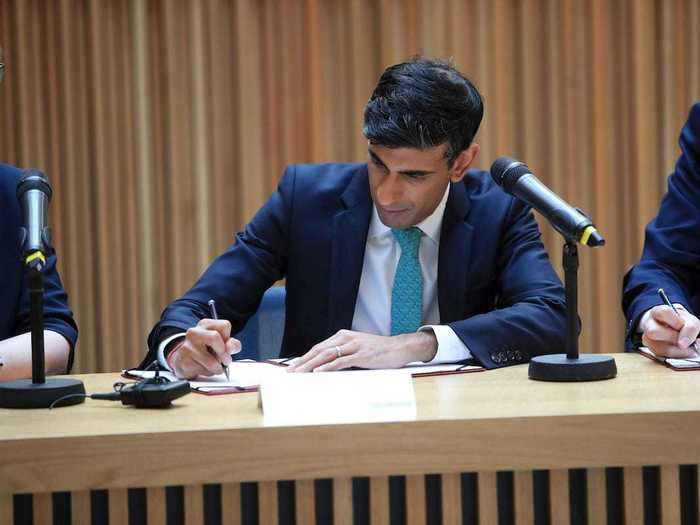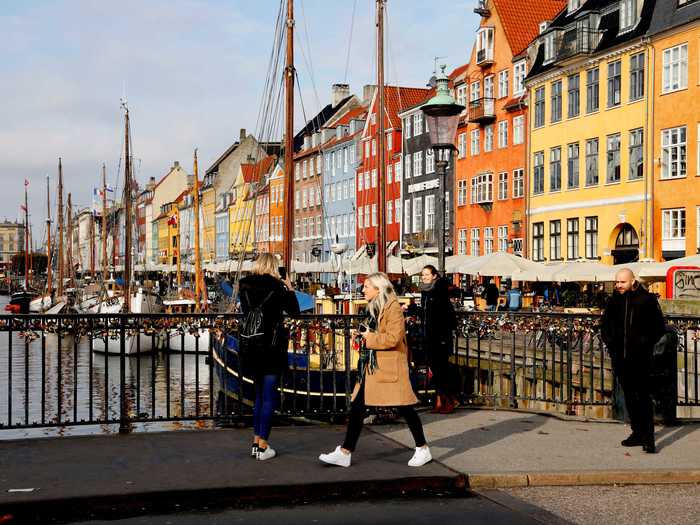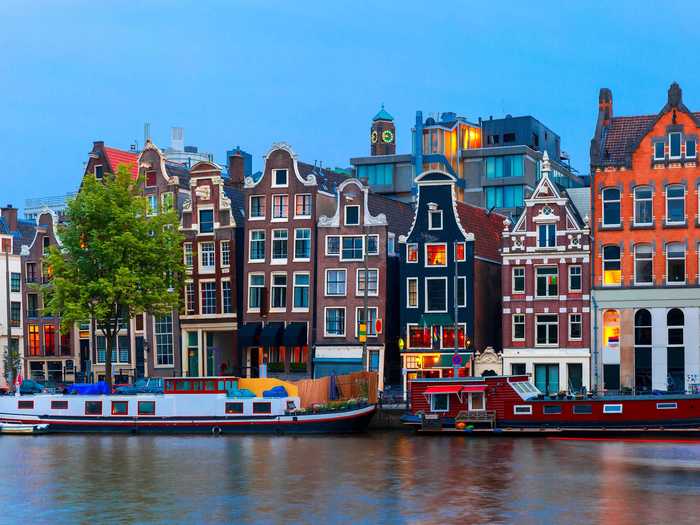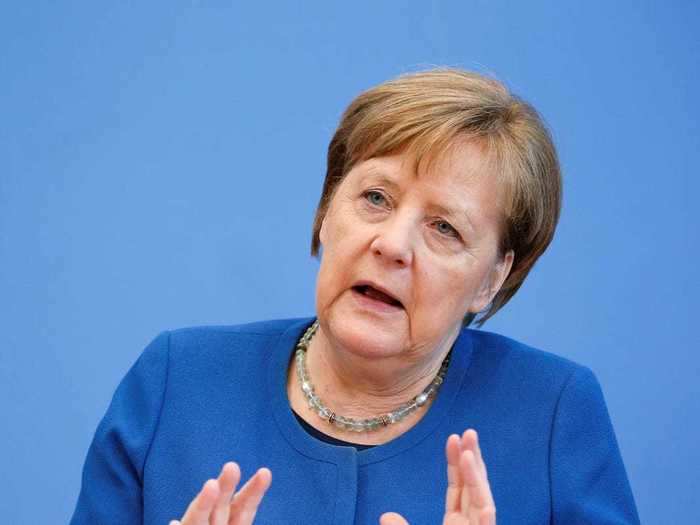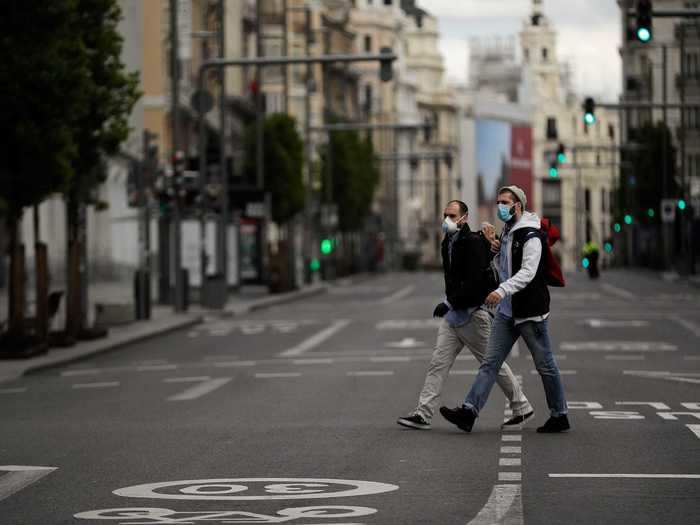The United States will send out stimulus checks.Reuters
- As countries around the world bear the brunt of the coronavirus pandemic, some governments are stepping in with direct assistance.
- From monthly payments to one-time checks, many countries are putting cash directly in the hands of impacted or self-employed workers.
- 80 million Americans have already received stimulus checks — and Senate progressives have announced a plan to get Americans $2,000 a month throughout the coronavirus crisis.
- Others, like France and Denmark, have stepped in to subsidize workers' wages and prevent layoffs.
- Visit Business Insider's homepage for more stories.
The wake of the coronavirus pandemic has left people around the world have with their livelihoods — and daily lives — completely upended.
In response to the economic fallout, some governments have stepped in to cushion the blow felt by sudden closures and the shrinking of entire industries. In many countries, workers in specific sectors and self-employed citizens have found themselves particularly impacted.
By April 17, over 80 million Americans had their $1,200 stimulus checks direct-deposited. On top of that stimulus check, Senator Bernie Sanders (I-VT), Kamala Harris (D-CA), and Ed Markey (D-MA) announced on Friday that they are introducing a bill to give Americans $2,000 a month.
The Monthly Economic Crisis Support Act will give citizens making less than $120,000 an extra $2,000 month for every month during the coronavirus crisis — and for three months after.
In April, House Democrats proposed a similar bill called the Emergency Money for the People Act; the bill would give $2,000 every month — for six months — to Americans over the age of 16 making less than $130,000 a year.
But the level of support from different countries has varied around the world. The United States is solidly in the middle of the pack, while countries like Germany lead by offering over $5,000 in assistance to freelancers.
Here's how different countries rank when it comes to the amount of direct assistance they're providing.
Read the original article on
Business Insider
South Korea will cover 70% or more of wages.
South Korea.
Marco Bicci/Shutterstock
Some contractors and self-employed or part-time workers may also be eligible for a one-time cash payment, The New York Times reports.
Italy will give around $650 to self-employed and seasonal workers.
Soldiers patrol Milan during Italy's coronavirus lockdown.
Associated Press
The day after applications for funds opened, the website crashed, Eddy reports.
In Australia, over 6 million "low-income earners" will receive $750 cash payments.
Prime minister Scott Morrison.
Cole Bennetts /Getty Images
"Frankly, it is about a cash injection into the Australian economy, which supports small businesses and supports medium businesses," Prime Minister Scott Morrison said, according to The Guardian.
"That, in turn, supports the jobs, which means people can continue to participate positively in the economy and have greater confidence going forward."
Ireland introduced weekly emergency payments for self-employed people and those who had lost their jobs.
Ireland.
Jason Cairnduff/Reuters
Payments were about $220 a week, according to Reuters. Over 58,000 people had claimed them just three days after the announcement.
Malaysia is offering direct handouts to workers in some impacted industries.
A mosque in Malaysia.
Lim Huey Teng/Reuters
Bus and taxi drivers, tour guides, immigration workers, and medical workers will all receive money from Malaysia's coronavirus package, Bloomberg reports.
The government will subsidize wages for three months for workers earning under around $915 a month, according to the South China Morning Post.
Every Japanese citizen will receive $930.
Prime Minister Shinzo Abe.
Jonathan Ernst/REUTERS
Prime Minister Shinzo Abe announced today that Japan's 120 million citizens will each receive a $930 cash payment, the Los Angeles Times reports.
The country is already facing an economic hit this summer after the postponement of the 2020 Tokyo Olympics.
In Hong Kong, the government will pay 50% of workers' salaries for six months.
Each worker's monthly subsidy is around $1,160.
The government will also funnel over $100 million into a program that helps workers learn new skills and businesses implement more technology, South China Morning Post (SCMP) reports.
Additionally, the government will add 30,000 new jobs in the next two years.
"In these unprecedented circumstances, the government must have some unprecedented responses — to help businesses to survive, safeguard employment, and minimize the burden on businesses and citizens," Chief Executive Carrie Lam Cheng Yuet-ngor said, according to SCMP.
The United States is sending many Americans $1,200 stimulus checks.
Treasury Secretary Steven Mnuchin.
Chip Somodevilla/Getty Images
Many Americans will automatically receive their checks, Business Insider's Libby Kane and Tanza Loudenback report. Around 80 million Americans have already received their checks.
Not everyone will receive $1,200; you can use an online calculator to figure out how much you'll get.
On May 8, Senator Bernie Sanders (I-VT), Kamala Harris (D-CA), and Ed Markey (D-MA) introduced a bill to give Americans making less than $120,000 an additional $2,000 a month. Business Insider's Kayla Epstein reported that the Monthly Economic Crisis Support Act would continue throughout the coronavirus crisis, and provide payments for three months after it ends.
They join two House Democrats — Rep. Tim Ryan and Rep. Ro Khanna — who introduced a bill in April that would provide even more funds to Americans. Business Insider's Charles Davis reported that, under the Emergency Money for the People Act, American citizens over the age of 16 — and making less than $130,000 — would receive $2,000 a month.
The payments would last for at least six months and until unemployment returns to a pre-pandemic level. Qualifying families could receive an additional $500 per child.
In Brussels, self-employed workers are eligible for replacement income in March and April.
A train in Belgium.
Yves Herman/Reuters
The different regions of Belgium have offered different payments. Brussels will compensate those who are self-employed and have either had to stop working or had work disrupted for at least seven days around $1,400 for both March and April.
The different regions are all offering funding to impacted cultural sectors.
France is offering self-employed workers up to $1,600.
Around 600,000 French citizens can receive the money if lockdowns stopped them from working or reduced business by 70%, reports Melissa Eddy at The New York Times.
Additionally, the country is spending $50 billion to pay businesses to keep workers employed, according to Liz Alderman at The New York Times.
"There's a very different strategy in Europe than in the United States about how to manage this recession," Patrick Artus, chief economist of Paris-based Natixis Bank, told Alderman. "The idea is to have no layoffs or company closures, so that when the coronavirus is finally under control the economy can start right back up."
The UK government will pay up to 80% of workers' wages, a first for the country.
Chancellor Rishi Sunak.
Danny Lawson/Pool via REUTERS/File Photo
The plan will cover around $3,000 a month, Zeballos-Roig reports. And companies could use it retroactively, rehiring any workers who were laid off.
In addition, the government has given free cash grants to small businesses.
Denmark will pay 75% to 90% of workers' salaries on behalf of employers, as long as workers aren't laid off.
Copenhagen.
Jacob Gronholt-Pedersen/Reuters
In mid-March, the Danish government announced that it would give private companies 75% of their workers' salaries for 13 weeks. Companies can only receive that money — $3,288 a month— if they do not fire workers, Derek Thompson at The Atlantic reports.
The measure is meant to keep workers home during the pandemic; they're not allowed to work during the three month period.
The government will also cover sick leave and give businesses money for fixed expenses like rent, Business Insider's Joseph Zeballos-Roig reports. The country may spend up to 13% of its gross domestic product financing the plan.
In the Netherlands, the government will pay up to 90% of workers' salaries.
The Netherlands.
Shutterstock
Companies that expect to lose at least 20% of their revenue can apply for funding. The government will then cover wages for the next three months.
Companies are only eligible for funding if they don't lay off workers during the time the government provides aid.
Germany is offering aid to small employers and to freelancers — and freelancers in Berlin can get over $5,000 in assistance.
Chancellor Angela Merkel.
REUTERS/Michele Tantussi
All 16 states in Germany are offering payments to smaller businesses and self-employed citizens, Eddy reports. The aid comes from a combination of state funds and federal support from the country's coronavirus package.
In Berlin, this group accounts for almost a quarter of all business. The process for receiving aid there has reportedly been noteworthy for its efficiency. Freelancers can receive grants of around $5,422, artnet reports.
"We are all pretty amazed," Laurenz Bostedt, a freelance photographer, told Eddy. "It went surprisingly fast and was all refreshingly well-organized."
Spain is moving towards establishing a permanent basic income.
Madrid, Spain.
Burak Akbulut/Anadolu Agency via Getty Images
On Sunday evening, minister for economic affairs Nadia Calviño said that the government was working on implementing cash handouts. It will likely be for low-income citizens.
There is no exact plan for when handouts will begin, or what exactly it will look like.
"We're going to do it as soon as possible," Calviño said, Business Insider's Joseph Zeballos-Roig reports. "So it can be useful, not just for this extraordinary situation, and that it remains forever."

